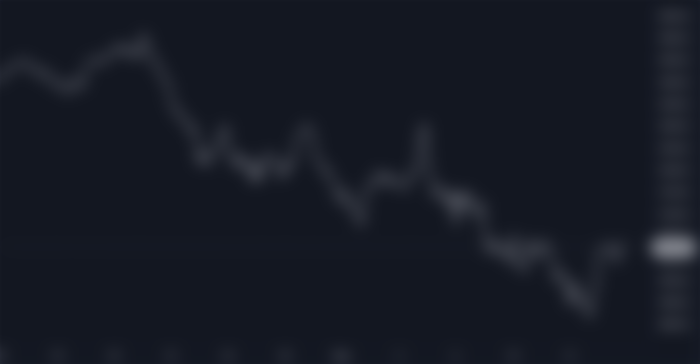Crypto crash could shake the economy of El Salvador

As some of you probably already know, the crypto markets have been having a torrid time for the past few weeks. Cryptocurrencies across the board, including Bitcoin, Ethereum, and Terra, have all crashed, and the drop doesn't seem to be slowing down. So in this article I'm going to be taking a look at the ongoing crypto crash and how it might even force El Salvador into default.
Let's start with the crypto crash itself. As central banks around the world raise interest rates to cool off their national economies, stock markets have been plummeting. The Nasdaq is down 28% from its January high, while the S&P is down 18%. Sort of makes sense, as central banks raise interest rates, trade and demand dry up, and this reduces the revenues of publicly traded companies. What's been more surprising, however, is the corresponding drop in crypto markets, where things have been far worse. Just looking at the big cryptocurrencies, drops in excess of 50 percent aren't uncommon.

S&P500 index for last one month
Bitcoin, for example, is currently trading at around 30,000 dollars, and Ethereum is trading at around 2,100 dollars, both down about 50% in the last six months, as is Tether, which is supposed to be a stable coin that always trades at one dollar. To 95 cents on Thursday, prompting its chief technology officer to tweet reassurances to investors that it was capable of honoring withdrawals at par. Smaller cryptocurrencies have fared even worse. Cardano and Solana are both down 80 from their September and November highs, respectively. Terra/Luna, which was once among the top 10 most valuable cryptocurrencies, lost 99.9% of its value in just 24 hours. You get the picture. The crypto market is crashing and crashing hard.
This is probably happening now because while cryptocurrencies aren't really directly affected by changes in interest rates, they are affected by changes in market confidence. Crypto assets, like many other assets, are clearly speculative. In other words, lots of people buy crypto assets just hoping they'll go up in value, and they can sell them later without any regard to the intrinsic value. This means that when a sell-off begins, it sets off a feedback loop in which speculative investors who only wanted the crypto assets for their future value sell off to limit their losses, causing the price to fall even further and causing even more people to sell off. What triggered the sell-off this time? Well, it probably began in reaction to the collapse of the stock market. Crypto traders saw the value of their portfolios declining and decided to sell their cryptos. Whatever the original cause, the feedback loop was started and cryptos have been collapsing.

Luna price graph
People across the internet have lost terrifying amounts of money on the idea that cryptos are a sort of digital gold or a hedge against inflation. The Terra Luna Subreddit pinned national helpline numbers after multiple posts from users considering suicide. However, the biggest loser in this crypto crash might be Nayib Bukele, for those of you who don't know him. Bukele is the twitter-addicted president of El Salvador. In 2015, Bukele was elected mayor of San Salvador, the capital of the largest city in El Salvador. He was remarkably popular with San Salvadorians, largely because he successfully reduced crime in the city. In his first year in office, the murder rate fell by half, which Bukele attributed to his tough anti-crime policies, which included increased police and military presence on the streets, as well as tighter security and jails. it's worth noting that there were reports that Bukele had made an informal deal with the gangs,
Bukele also won over voters with projects to revitalize poor neighborhoods, progressive stances on social issues such as gay marriage, and shrewd use of social media. He even donated his salary to provide scholarships for poor students. Throughout his mayoralty, Bukele enjoyed approval ratings of above 70% and soon became the most popular politician in the country. Bukele used his mayorship as a launch pad to the presidency, winning the 2019 presidential election by a landslide with 53 percent of the vote, well ahead of both of the mainstream candidates.

Once in power, Bukele turned into a bit of an autocrat, albeit an effective one. Apparently, thanks to some dodgy deals between Bukele's government and the gangs, gang warfare has subsided, and the murder rate has fallen by 60 percent. But alongside reducing the crime rate, Bukele's other big political aspiration was to turn El Salvador into a crypto paradise. On September the 7th of last year, Bukele passed a law recognizing bitcoin as legal tender, requiring businesses to accept the cryptocurrency for goods and services, and a few months later, he announced a 1 billion dollar bitcoin bond issuance to fund a low-tax bitcoin city next to the Kolchagwa volcano. Since September, Bukele has bought some, 2301 bitcoins with El Salvadorian taxpayer money. The most recent purchase came on Monday, May the 9th, when he bought 500 coins at an average price of $30,744.
We did the math and figured out that the average price Bukele paid for his bitcoins was about 43,900 per bitcoin. At the time of writing, bitcoin is trading at about 30,000, which means Bukele has lost around 14,000 per bitcoin, or about 32 million dollars total. Now, we should say that 32 million dollars isn't going to bankrupt an entire country. El Salvador is a tiny country of less than seven million people with a GDP per capita of less than four thousand dollars, but it's already got a national debt of about 23 billion dollars, so another 23 million dollars is hardly going to take it over the edge. However, Bukele's failing bitcoin strategy has also hurt El Salvador's finances in other ways. His reckless by-the-dip attitude has spooked investors, pushing El Salvador's borrowing costs sky-high.

For context, El Salvador's 800 million dollar bond due next January is now trading at 76 cents on the dollar, implying an annual yield of over 50 percent. And in early May, Moody's downgraded El Salvador's credit rating to Caa3 with a negative outlook, which is one rating away from a likely or very near default. For those of you who don't know much about bond yields, that's really not good. Bukele was planning on paying off this 800 million dollar bond due in January by issuing a new so-called bitcoin bond worth one trillion dollars. Again, the crypto cash has put a spanner in the works here, because, well, who wants a bitcoin bond when bitcoin is crashing? Bloomberg recently reported that there's currently zero demand for it, although we should say that Bukele's finance minister claims it's 50% oversubscribed.

Anyway, if Bukele can't find any buyers for his bitcoin bond, then default on that 800 million dollars during January looks likely. Yet nonetheless, Bukele looks unlikely to change course. He's continued to buy the dip and even revealed a model of Bitcoin City in the last few days. Bukele will be encouraged by his sky-high approval ratings, while El Salvadorians aren't so keen on his bitcoin plans. The vast majority support his crime and COVID policies, and his approval rating remains well above 80%, one of the highest in the world. This might be good news for Bukele, the lack of political resistance to his hair-brained bitcoin schemes might end up being bad news for ordinary El Salvadorians.





